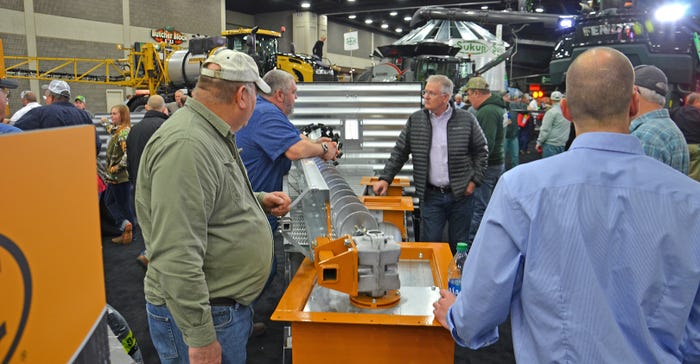
New types of grain bin equipment could make it easier to clear plugs when spoiled grain stops up an auger inside a bin. Some of these tools, plus existing tools and information about dangers of grain entrapment, were on display by several companies at the recent National Farm Machinery Show in Louisville, Ky.
However, industry officials were quick to make a key point: While these tools may help in the future, they’re not going to help if you have plugged augers or a bin of out-of-condition grain now. If you find yourself facing that dilemma, industry insiders suggest the best solution is to seek professional help. Contact your grain bin supplier or local dealer for advice on how to best address situations where augers are plugged or where you have discovered spoilage inside a bin.
“You never want to go inside the bin if you can help it,” says Bill Field, Purdue University Extension farm safety specialist. In those cases where it’s absolutely necessary to go inside a bin, follow safety recommendations judiciously.
Those include never entering a bin with an auger running, locking out the power supply to the unloading auger with a physical lock before you enter a bin, having a person with you who is stationed outside the bin at the top of the bin entrance, and using harnesses.
The best advice is to follow the steps necessary to keep grain in condition when you place it into the bin in the fall — removing fines by coring bins shortly after filling them and monitoring condition of the grain on a regular basis, Field says.
Industry experts note that problems with spoiled grain, plugged augers and potential bin entrapment cases tend to show up more with grain still in storage in late winter through spring, as the weather warms up. This year, those problems showed up much earlier, with fatalities due to grain entrapment reported in the Midwest in December, January and February.
Check out the slideshow to learn more about grain bin safety and products that support it.
About the Author(s)
You May Also Like




